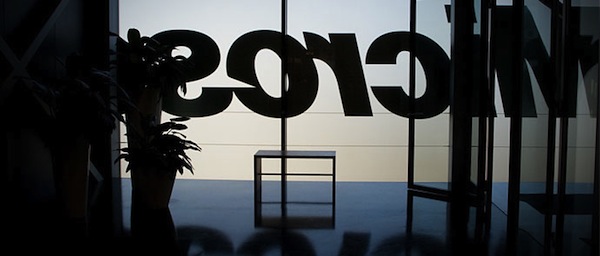The great Microsoft antitrust oversight farce ends

It's a little over 10 years since Microsoft largely won/lost the appeal of the U.S. government's landmark antitrust case. Today, Thursday, May 12, 2011, the oversight regime created by the judgement against Microsoft ends. Can anyone reasonably say that this case made any meaningful difference to the
technology business?
I've always been hardcore, maybe even an extremist, about the antitrust case against Microsoft. I never thought of it as a dangerous monopoly.
Oh sure, Microsoft had absurdly high market share and the company was a bastard to do business with, but everyone, and I mean everyone, who ever bought a Microsoft product had alternatives. They chose to buy the Microsoft product. The products sucked, but all things considered they were better than the alternatives.
The fact that there weren't even more alternatives or that the ones available couldn't compete is due to their deficiencies. Did IBM's OS/2 on the desktop fail because Microsoft wouldn't let any OEMs sell it? It hardly matters, because nobody would have bought it anyway. There were plenty of people who could have bought OS/2 and didn't. I remember those days. I remember OS/2 had a barely functional Netware stack in a business world where Netware really mattered. I remember OS/2 having device drivers for about 3 graphics cards. It was, in many ways, an excellent operating system, but it didn't do what people really needed. Windows 3.1 -- the crappy, unstable, ugly Windows 3.1 -- actually did that better.
Did Microsoft's business practices make any difference at all to the fate of Apple? Apple has done its best over time to stay out of markets where it had to deal with Microsoft. Apple doesn't make clones. If anything, Microsoft has aided Apple by writing pretty high-quality Mac apps.
What about PC OEMs? When antitrust oversight began and Microsoft was rigidly prohibited from dissuading any OEMs from offering alternative operating systems the (lawyers') assumption was that they would begin to offer alternatives. Guess what? It didn't happen. Why? Because the alternatives sucked. Nobody wanted to run OS/2. (IBM couldn't even persuade its own PC company to preload OS/2.) Nobody wanted Linux on the desktop. More bad ideas came, whimpered and left: Nobody wanted a Java PC or a PenPoint tablet.
And then, just as Microsoft suggested in the trial, the inevitable happened. People got better ideas, ideas that they turned into products that people actually wanted to buy. Maybe it started with the iPhone, or maybe just with applications moving to the web, but control started to move away from Microsoft-- and court oversight had nothing whatsoever to do with it.
In fact, as far as I can tell, all the court dealt with for years has been protocol documentation that Microsoft was obligated to write. I have no doubt that Microsoft hates having to spend money on this stuff, but surely its executives laugh heartily at the idea that it makes a big difference to anyone.
Let me bring back one bit of history that doesn't get mentioned a lot: Does anyone think it was bad for Microsoft to make web browsers free? Would we all have been better off paying Netscape $35 for a browser? After all this time, was the fact that Netscape wasn't widely preloaded (although there were systems on which it was preloaded, I remember Compaq had some) really the reason Netscape collapsed? Or was it just bad business? After a time, Netscape gave up and made a free browser that also wasn't preloaded much and because it was better than Internet Explorer, at the time, it became popular.
Bottom line: the court decision has been a big waste of money for everyone except the lawyers who, as always, got rich off it. The computer industry did change, but it was because of the free enterprise that was always there, not because government stepped in and made things better.
Photo Credit: Microsoft
Larry Seltzer is a freelance writer and consultant, dealing mostly with security matters. He has written recently for Infoworld, eWEEK, Dr. Dobb's Journal, and is a Contibuting Editor at PC Magazine and author of their Security Watch blog. He has also written for Symantec Authentication (formerly VeriSign) and Lumension's Intelligent Whitelisting site.